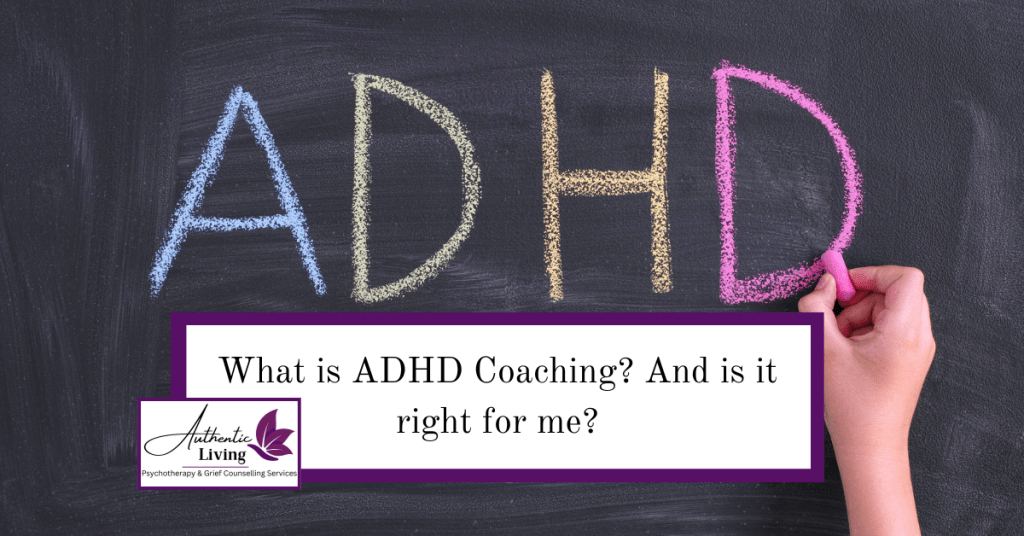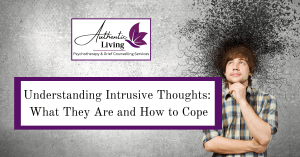If you or someone you care about has ADHD, you’ve probably heard about ADHD coaching — but what is it exactly? And how is it different from therapy, life coaching, or other supports? Let’s break it down so you know what to expect, what’s helpful (and what’s not), and how to choose the right kind of support for you.
What is ADHD Coaching?
ADHD coaching is a collaborative, goal-focused process designed to support people with ADHD in managing daily life, improving executive functioning, and building self-confidence. ADHD coaches help clients develop tools and strategies tailored to their unique brains — often focusing on planning, time management, organization, task initiation, and emotional regulation.
Unlike general life coaching, ADHD coaching is rooted in an understanding of how neurodivergent brains work. Coaches recognize that ADHD isn’t about laziness or lack of effort — it’s about differences in brain wiring that affect motivation, attention, and follow-through. A good ADHD coach works with your strengths, not against your struggles.
What Happens in an ADHD Coaching Session?
In a typical ADHD coaching session, you might:
Set specific, realistic goals for the week
Break big tasks into manageable steps
Identify barriers to productivity (like perfectionism or distractions)
Learn strategies to improve focus, time awareness, or emotional regulation
Explore tools like planners, apps, timers, or habit trackers
Reflect on what worked and what didn’t from the previous week
Sessions are 50 minutes long, action-oriented, and nonjudgmental. The focus is on learning by doing — not on talking about change, but building change together.
What People Sometimes Expect — But Doesn’t Happen in ADHD Coaching
Some people show up to their first ADHD coaching session expecting it to feel like traditional therapy. While therapy can be part of your overall support plan, ADHD coaching is different.
Here’s what typically does not happen in coaching:
Deep exploration of childhood experiences or past trauma (That’s therapy.)
Diagnosis or medication management (Only doctors and psychologists do this.)
The coach “fixing” everything for you (They guide you, but you’re the driver.)
One-size-fits-all solutions (Each person with ADHD is different — coaching is tailored.)
Coaching is forward-focused and practical. It’s about building skills, not analyzing your past.
Working With a Therapist Who Offers ADHD Coaching: Pros and Cons
Many therapists now offer ADHD coaching as part of their practice, which can be incredibly helpful, especially if you’re dealing with both emotional and executive functioning challenges. If you’re uncertain, don’t hesitate to ask your therapist or coach how they define their role and the kind of support they provide. Transparency is essential.
Pros
- You get the best of both worlds. A therapist-coach can support both emotional well-being and practical life skills.
- They understand the overlap. Many people with ADHD also experience anxiety, depression, or trauma — and a therapist can hold space for all of that.
- More flexible support. Coaching can be blended with therapy to fit your needs.
Cons
Blurry boundaries. It’s important to be clear on when you’re doing coaching versus therapy — they serve different purposes.
Availability. Not all therapists offer coaching, and not all coaches are trained therapists — so it may take time to find the right fit.
Insurance may not cover coaching. If your therapist is offering ADHD coaching outside of their clinical practice, it may not be billable through extended benefits.
A Final Word: Find a Specialist Who Gets It
Whether you’re newly diagnosed or just looking for better tools to navigate life with ADHD, working with someone who truly understands neurodivergence can make a world of difference.
Lizanne Hills is trained as a Neurodivergent Specialist and offers ADHD coaching that meets you where you are — with compassion, skill, and real-life tools that work for your unique brain. She understands that no two people with ADHD are alike, and her approach blends structure with flexibility to support your growth at your pace.

Lizanne Hills
Registered Psychotherapist -Qualifying Addictions Certificate
Areas of Focus: Grief, Addictions, Family Therapy, Couples Therapy, Trauma/PTSD, Children’s Grief, Autism Spectrum Disorder, Life Transitions





